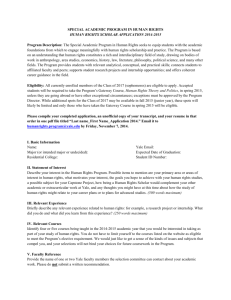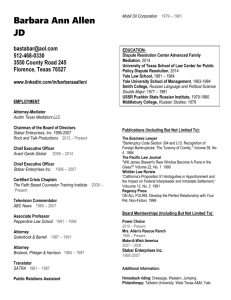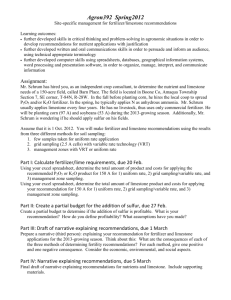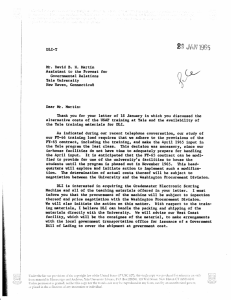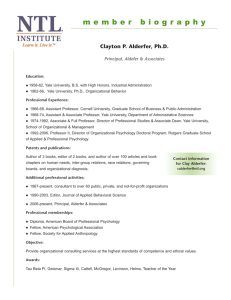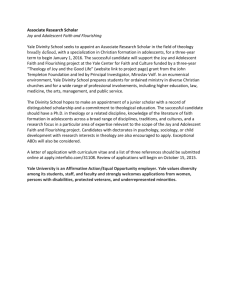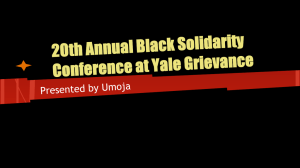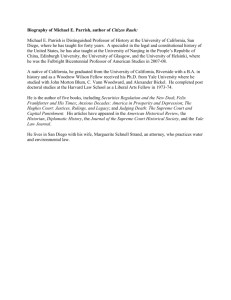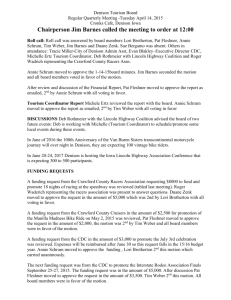Paul J. Fonteyn
advertisement
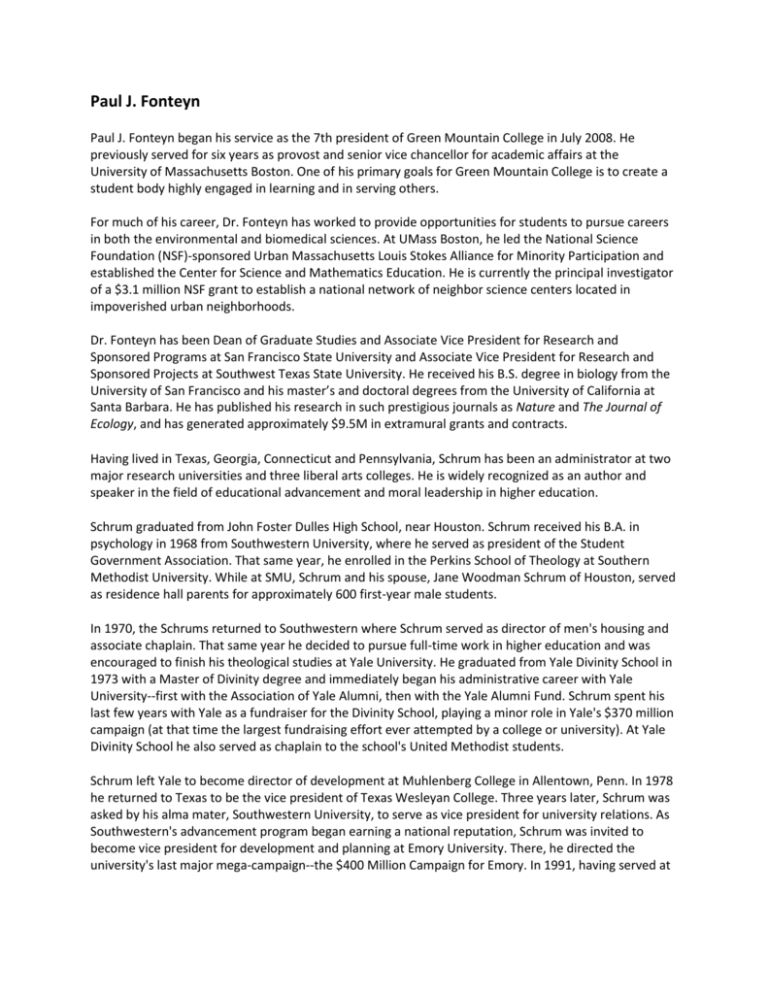
Paul J. Fonteyn Paul J. Fonteyn began his service as the 7th president of Green Mountain College in July 2008. He previously served for six years as provost and senior vice chancellor for academic affairs at the University of Massachusetts Boston. One of his primary goals for Green Mountain College is to create a student body highly engaged in learning and in serving others. For much of his career, Dr. Fonteyn has worked to provide opportunities for students to pursue careers in both the environmental and biomedical sciences. At UMass Boston, he led the National Science Foundation (NSF)-sponsored Urban Massachusetts Louis Stokes Alliance for Minority Participation and established the Center for Science and Mathematics Education. He is currently the principal investigator of a $3.1 million NSF grant to establish a national network of neighbor science centers located in impoverished urban neighborhoods. Dr. Fonteyn has been Dean of Graduate Studies and Associate Vice President for Research and Sponsored Programs at San Francisco State University and Associate Vice President for Research and Sponsored Projects at Southwest Texas State University. He received his B.S. degree in biology from the University of San Francisco and his master’s and doctoral degrees from the University of California at Santa Barbara. He has published his research in such prestigious journals as Nature and The Journal of Ecology, and has generated approximately $9.5M in extramural grants and contracts. Having lived in Texas, Georgia, Connecticut and Pennsylvania, Schrum has been an administrator at two major research universities and three liberal arts colleges. He is widely recognized as an author and speaker in the field of educational advancement and moral leadership in higher education. Schrum graduated from John Foster Dulles High School, near Houston. Schrum received his B.A. in psychology in 1968 from Southwestern University, where he served as president of the Student Government Association. That same year, he enrolled in the Perkins School of Theology at Southern Methodist University. While at SMU, Schrum and his spouse, Jane Woodman Schrum of Houston, served as residence hall parents for approximately 600 first-year male students. In 1970, the Schrums returned to Southwestern where Schrum served as director of men's housing and associate chaplain. That same year he decided to pursue full-time work in higher education and was encouraged to finish his theological studies at Yale University. He graduated from Yale Divinity School in 1973 with a Master of Divinity degree and immediately began his administrative career with Yale University--first with the Association of Yale Alumni, then with the Yale Alumni Fund. Schrum spent his last few years with Yale as a fundraiser for the Divinity School, playing a minor role in Yale's $370 million campaign (at that time the largest fundraising effort ever attempted by a college or university). At Yale Divinity School he also served as chaplain to the school's United Methodist students. Schrum left Yale to become director of development at Muhlenberg College in Allentown, Penn. In 1978 he returned to Texas to be the vice president of Texas Wesleyan College. Three years later, Schrum was asked by his alma mater, Southwestern University, to serve as vice president for university relations. As Southwestern's advancement program began earning a national reputation, Schrum was invited to become vice president for development and planning at Emory University. There, he directed the university's last major mega-campaign--the $400 Million Campaign for Emory. In 1991, having served at Emory for more than six years, Schrum was elected the 17th President of Texas Wesleyan University in Ft. Worth. During his time at Texas Wesleyan, the university's endowment more than doubled from $22 million to $50 million, and the enrollment increased from 1,429 to 3,000 students. The annual fund also doubled from $450,000 to just over $900,000. A law school was acquired and fully accredited by the American Bar Association and a $12 million campus was built for the law school in downtown Fort Worth. A Weekend University, an MBA program, a distance-learning program in graduate education, as well as a bilingual education program also were established. Texas Wesleyan's budget grew from $11 million to $32 million in just eight years, and the university garnered resources amounting to almost $40 million.

